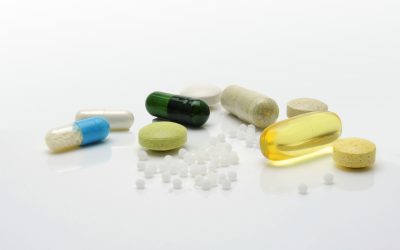Fertility Supplements 101
Fertility Supplements: An Overload of Information
There is currently an information overload on the Internet about fertility supplements. It can get overwhelming to know what is actually beneficial versus what could potentially be harmful.
I can’t tell you how many women come into my office having started Vitex, only to have me take them off of it because it wasn’t appropriate for their hormonal balance.
The value of visiting a Naturopathic Doctor is in the personalized assessments and individualized plans. Assessments consist of history, symptoms, diet, stress levels, daily routines, and all aspects of a person’s life, which may be affecting the individual from achieving optimal health. Physical exams and labs like hormone testing are also done. Individualized plans are based on a complete profile of personal information from the patient.
Are there specific fertility supplements that can boost my chances? And is there research that supports their use?
The short answer is YES!
The Most Popular Fertility Supplements
CoQ10
CoQ10 is made naturally in the body, and is found in the mitochondria- the cell’s powerhouse. Deficiency may be related to age- associated decline. CoQ10 is required for energy generation, DNA health of egg and sperm, and overall health1.
CoQ10 supplements exist in two forms- ubiquinone and ubiquinol, with ubiquinol having greater bioaccessibility and bioavailability of the two2. This means it is more efficiently absorbed and used by the body2.
CoQ10 is a fertility supplement powerhouse. In areas of mitochondrial and ovarian aging, CoQ10 supplementation shows improvements in the percentage of births with chromosomal defects3 (e.g. Down syndrome), egg cell (oocyte) quality4, and mitochondrial function4,5. There is also evidence in the beneficial effects of CoQ10 on sperm count and sperm motility in infertile men6. This means CoQ10 supplementation is beneficial for both female and male infertility.
Antioxidants
Vitamin C, E, and selenium have all been researched and present strong positive relationship between supplementation and increased fertility. Vitamin C is related to an increase in endometrial thickness14, which results in greater rates of pregnancy15.
A study looking at selenium and vitamin E supplementation shows improved semen quality and sperm motility16. Generally, most male infertility cases are related to oxidative stress17. Supplements like L- carnitine, vitamin E, CoQ10, and vitamin C are useful in treating male infertility related to this cause17.
Omega 3
Our body cannot produce omega-3 fatty acids, so they are considered essential fatty acids. Omega- 3s are important for brain function, development, cell division and growth.
It also plays a major role in reducing inflammation and lowering the bad cholesterols. Couples (both male and female, and female alone) with higher free cholesterol levels tend to have lower fertility7.
A study looking at the relationship between omega- 3 and FSH levels indicates omega-3’s effect on the extension of reproductive lifespan8. Increase in FSH levels during reproductive years signals abnormalities, which could be due to poor ovarian reserve or other various causes. Omega-3 is shown to decrease FSH levels; indicating its effect on delaying ovarian aging and extending reproductive lifespan.
Folate (vs. Folic Acid)
Folate and folic acid are not the same. Folic acid is a synthetic form, its metabolism requires specific enzymes in the liver and tends to accumulate in the body and leads to various forms of disease. In comparison, folate occurs in nature and is metabolized in the intestines. Folate, at high doses, has shown to be related to lower rates of infertility and pregnancy loss20.
Inositol
Inositol supplementation has been shown to be effective for patients with polycystic ovary syndrome (PCOS)18 and improves ovulatory function19. In patients with PCOS, improvements in clinical pregnancy rate increased to 33.3% versus 13.3% in the control18. Due to inositol’s effects on egg cell quality and maturation, improvements in pregnancy rate are seen in infertile women with poor egg cell quality19.
Vitex
Vitex increases progesterone by increasing luteinizing hormone (LH) and inhibiting follicle- stimulating hormone (FSH). One of the main functions of progesterone with fertility is its role in the development of the embryo. Progesterone also stimulates the secretion of TH2 and reduces TH121. This process is necessary for the maintenance of pregnancy and a positive pregnancy outcome.
Probiotics
Probiotics are not only important for gut health, but also our overall health. Infertility is correlated with systemic inflammation. Probiotics help balance TH1 and TH2 which can reduce inflammation. It also improves vaginal microbiome, which results in a better environment for sperm to survive and make it to the egg. Strains like Lactobacillus rhamnosus, Bifidobacterium animalis, or Propionibacterium freudenreichii are effective in reducing inflammatory markers in humans22.
Iron
Iron is an important part of red blood cells in our body. Lack of iron leads to the development of anemia, resulting in deficiency in oxygen delivery to body cells and tissues. When the reproductive organs do not get enough oxygen, quality of the egg and sperm deteriorate, fetal development may be almost impossible if conception does occur. Iron supplementation continuously to show improvements in fertility, this includes iron supplements and non-heme iron from other sources23.
Vitamin D
Vitamin D is a fat-soluble vitamin, which we get from the sun. However, some places don’t get enough sun to meet the required vitamin D levels we need. When compared to women with sufficient vitamin D level, those who are deficient and insufficient are less likely to get pregnant24.
L-Carnitine
One of the most common causes of male fertility is impaired sperm motility. Studies show improvements in sperm count, motility, and concentration in males receiving L-carnitine treatment (vs. placebo and control)9, 10, 11.
The epididymis (where sperms mature) contains elevated levels of L- carnitine comparing to other tissues in the body. L- carnitine is required by the cell mitochondria in energy generation and metabolism11, 12. It also has antioxidant properties, which reduce free radicals, and results in increases in sperm forward motility and viability13.
Can’t I Just Get These From My Diet?
Food is certainly the foundation of health and the cornerstone of our approach, but when someone is deficient in a nutrient, simply increasing specific foods will unlikely have beneficial impact. For one, foods today are often less dense in nutrient levels than they used to be. But also for someone who is deficient and wishing to get high levels in a short amount of time, obtaining the sufficient amount of nutrients required from foods is nearly impossible unless an unrealistic amount is consumed.
Obtaining nutrients from foods is great for maintenance and long-term health, but for the purpose of treatment and expedited changes in one’s fertility status, higher controlled doses and concentrated forms are necessary for results to occur. This is why fertility supplements, when used appropriately, are crucial.
Need Help Choosing?
If you are trying to conceive, have been unsuccessful in conceiving, or have been diagnosed with infertility, there are many natural treatment options available. We all have different lifestyles, habits, and health conditions, so an individualized treatment plan is vital. A thorough examination looking at physical, emotional, and psychological health is crucial in determining factors involved in your fertility status. Come in for a personalized assessment and find out what’s keeping you from conceiving. If you are struggling with infertility, Awaken Life is here and happy to help!
With love and in health,
Priya
References
- Linus Pauling Institute. (2017). Coenzyme Q10. [online] Available at: http://lpi.oregonstate.edu/mic/dietary-factors/coenzyme-Q10#biological-activities [Accessed 6 Sep. 2017].
- Failla M, Chitchumroonchokchai C, Aoki F. Increased Bioavailability of Ubiquinol Compared to That of Ubiquinone Is Due to More Efficient Micellarization during Digestion and Greater GSH-Dependent Uptake and Basolateral Secretion by Caco-2 Cells. Journal of Agricultural and Food Chemistry. 2014;62(29):7174-7182. Available from: http://pubs.acs.org/doi/abs/10.1021/jf5017829
- Bentov, Hannam T, Juriscova A, Esfandiari N, Casper R. Coenzyme Q10 Supplementation and Oocyte Aneuploidy in Women Undergoing IVF–ICSI Treatment. Clinical Medicine Insights: Reproductive Health [Internet]. 2014 [cited 5 September 2017];:31. Available from: https://www.ncbi.nlm.nih.gov/pmc/articles/PMC4071761/
- Ben-Meir A, Burstein E, Borrego-Alvarez A, Chong J, Wong E, Yavorska T et al. Coenzyme Q10 restores oocyte mitochondrial function and fertility during reproductive aging. Aging Cell [Internet]. 2015 [cited 5 September 2017];14(5):887-895. Available from: https://www.ncbi.nlm.nih.gov/pmc/articles/PMC4568976/
- Özcan P, Fıçıcıoğlu C, Kizilkale O, Yesiladali M, Tok O, Ozkan F et al. Can Coenzyme Q10 supplementation protect the ovarian reserve against oxidative damage?. Journal of Assisted Reproduction and Genetics. 2016;33(9):1223-1230. Available from https://www.ncbi.nlm.nih.gov/pmc/articles/PMC5010809/
- Alleva R, Scararmucci A, Mantero F, Bompadre S, Leoni L, Littarru G.P. The protective role of ubiquinol-10 against formation of lipid hydroperoxides in human seminal fluid – ScienceDirect [Internet]. com. 2017 [cited 5 September 2017]. Available from: http://www.sciencedirect.com/science/article/pii/S009829979700040X
- National Institutes of Health (NIH). (2014). NIH study links high cholesterol levels to lower fertility. [online] Available at: https://www.nih.gov/news-events/news-releases/nih-study-links-high-cholesterol-levels-lower-fertility [Accessed 6 Sep. 2017].
- Al-Safi Z, Liu H, Carlson N, Chosich J, Harris M, Bradford A et al. Omega-3 Fatty Acid Supplementation Lowers Serum FSH in Normal Weight But Not Obese Women. The Journal of Clinical Endocrinology & Metabolism. 2016;101(1):324-333. Available from https://www.ncbi.nlm.nih.gov/pmc/articles/PMC4701838/
- Lenzi, A., Lombardo, F., Sgrò, P., Salacone, P., Caponecchia, L., Dondero, F. and Gandini, L. (2003). Use of carnitine therapy in selected cases of male factor infertility: a double-blind crossover trial. Fertility and Sterility, 79(2), pp.292-300. Available from https://www.ncbi.nlm.nih.gov/pubmed/12568837
- De Rosa, M., Boggia, B., Amalfi, B., Zarrilli, S., Vita, A., Colao, A. and Lombardi, G. (2005). Correlation between Seminal Carnitine and Functional Spermatozoal Characteristics in Men???with Semen Dysfunction of???Various Origins. Drugs in R & D, 6(1), pp.1-9. Available from: https://www.ncbi.nlm.nih.gov/pubmed/15801863
- Gürbüz, B., Yalti, S., FiÇicioğlu, C. and Zehi˙r, K. (2003). Relationship between semen quality and seminal plasma total carnitine in infertile men. Journal of Obstetrics and Gynaecology, 23(6), pp.653-656. Available from: https://www.ncbi.nlm.nih.gov/pubmed/14617472
- Ng CM1, Blackman MR, Wang C, Swerdloff RS. The role of carnitine in the male reproductive system. Annuals of the New York Academy of Sciences. 2004 Nov;1033:177-88.
- Vicari E1, La Vignera S, Calogero AE. Antioxidant treatment with carnitines is effective in infertile patients with prostatovesiculoepididymitis and elevated seminal leukocyte concentrations after treatment with nonsteroidal anti-inflammatory compounds. Fertility and Sterility. 2002 Dec;78(6):1203-8
- Al- Katib S.R, Al- Kaabi M.MH, Al- Jashamy K.A. Effects of Vitamin C on the Endometrial Thickness and Ovarian Hormones of Progesterone and Estrogen in Married and Unmarried Women. American Journal of Research Communication. 2013; 1(8): 24- 31. Available from: http://www.usa-journals.com/wp-content/uploads/2013/07/Al-Katib_Vol18.pdf
- Richter K.S, Bunge K.R, Bromer J. G, Levy M.J. Relationship between Endometrial Thickness and Embryo Implantation, Based on 1,294 Cycles of In Vitro Fertilization with Transfer of Two Blastocyst- Stage Embryos. American Society for Reproductive Medicine. Available from: http://www.fertstert.org/article/S0015-0282(06)03158-X/abstract
- Moslemi, M. and Zargar, S. (2011). Selenium–vitamin E supplementation in infertile men: effects on semen parameters and pregnancy rate. International Journal of General Medicine, p.99. Available from: https://www.ncbi.nlm.nih.gov/pmc/articles/PMC3048346/
- Ahmadi S, Bashiri R, Ghadiri- Anari A, Nadjarzadeh A. Antioxidant Supplements and Semen Parameters: An evidence Based Review. International Journal of Reproductive Biomedicine. 2016; 14(12): 729-736. Available from: https://www.ncbi.nlm.nih.gov/pmc/articles/PMC5203687/
- Morgante, G., Orvieto, R., Di Sabatino, A., Musacchio, M. and De Leo, V. (2011). The role of inositol supplementation in patients with polycystic ovary syndrome, with insulin resistance, undergoing the low-dose gonadotropin ovulation induction regimen. Fertility and Sterility, 95(8), pp.2642-2644. Available from: https://www.ncbi.nlm.nih.gov/pubmed/21300338
- Unfer, V., Raffone, E., Rizzo, P. and Buffo, S. (2011). Effect of a supplementation with myo-inositol plus melatonin on oocyte quality in women who failed to conceive in previousin vitrofertilization cycles for poor oocyte quality: a prospective, longitudinal, cohort study. Gynecological Endocrinology, 27(11), pp.857-861. Available from: https://www.ncbi.nlm.nih.gov/pubmed/21463230
- Gaskins AJ, Chavarro JE. Diet and Fertility: A Review. American Journal of Obstetrics and Gynaecology. 2017. Available from: https://www-ncbi-nlm-nih-gov.ccnm.idm.oclc.org/pubmed/28844822
- Magon, N. and Kumar, P. (2012). Hormones in pregnancy. Nigerian Medical Journal, [online] 53(4), p.179. Available at: https://www.ncbi.nlm.nih.gov/pmc/articles/PMC3640235/ [Accessed 7 Sep. 2017].
- Ciel Patenaude, C. (2012). Can Probiotics Influence Fertility? It’s Conceivable!. [online] Holistic Primary Care. Available at: https://www.holisticprimarycare.net/topics/topics-o-z/womens-health/1350-can-probiotics-influence-fertility-its-conceivable.html [Accessed 7 Sep. 2017].
- Chavarro, J., Rich-Edwards, J., Rosner, B. and Willett, W. (2006). Iron Intake and Risk of Ovulatory Infertility. Obstetrics & Gynecology, 108(5), pp.1145-1152.
- Paffoni, A., Ferrari, S., Viganò, P., Pagliardini, L., Papaleo, E., Candiani, M., Tirelli, A., Fedele, L. and Somigliana, E. (2014). Vitamin D Deficiency and Infertility: Insights From in vitro Fertilization Cycles. The Journal of Clinical Endocrinology & Metabolism, 99(11), pp.E2372-E2376.
I want to help you get there. The key to your fertility lies within you.
Let's Awaken it!
More Reading
Naturopathic Medicine in Fertility
Whether you are just starting to try to get pregnant, struggling with getting pregnant or suffering from recurrent miscarriages, a fertility naturopathic doctor can help you along your fertility journey. Naturopathic doctors are trained healthcare professionals with...
The Role of Melatonin in Fertility
Most of us have heard about melatonin in the context of sleep, as a supplement that can impact our circadian rhythm. However, this hormone also plays an important role in female fertility. What is Melatonin? Melatonin is a hormone made by the pineal gland in...
Simple Tips to Improve Your Chances of Conceiving
It’s easy to get caught up in the minor details of what we could be doing better when trying to get pregnant. This can lead to constant thoughts around the effects that our daily activities have on our chances. This self-criticism can feel overwhelming and...




Share This
Share this post with your friends!